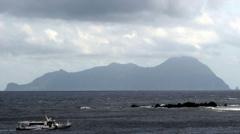The recent memorandum signed by President Trump tightens restrictions on Cuba as part of an ongoing effort to reverse the previous administration's policies, drawing sharp criticism from the Cuban government and raising questions about the effectiveness of these measures in improving conditions for the Cuban people.
Tightened Cuba Policy: Trump's New Restrictions Spark Controversy

Tightened Cuba Policy: Trump's New Restrictions Spark Controversy
Trump's memorandum aims to reimpose strict measures on Cuba, countering previous leniencies; will it benefit the Cuban populace?
In a significant policy shift, President Donald Trump has announced new restrictions on Cuba through a memorandum aimed at reinforcing measures that were relaxed by the Biden administration. The White House claims the move is designed to enforce a stricter interpretation of existing travel bans and to challenge growing international calls, particularly from the UN, to lift the ongoing US economic embargo against the island nation.
Cuban Foreign Minister Bruno Rodríguez publicly denounced the memorandum as a move that further intensifies "aggression and economic blockade," asserting that it perpetuates hardship for the Cuban people and hampers national development. The new policy outlines a rigorous enforcement of the current ban on American tourism to Cuba, already restricted to specific authorized travel categories, such as family visits, educational activities, humanitarian work, and sports events.
Crucially, the memorandum mandates thorough audits and record-keeping of travel-related transactions over the next five years, reinforcing compliance among US citizens traveling to Cuba. Furthermore, it blocks US entities from engaging in commercial activities involving GAESA, a conglomerate overseen by the Cuban military, which controls a significant portion of the hospitality sector in Cuba.
The tourism sector, a critical source of foreign currency for the Cuban government, has suffered tremendously due to economic woes and a spate of power outages sweeping the country. As the island grapples with severe shortages, Trump's memorandum emphasizes a commitment to "fostering a free and democratic Cuba," highlighting the suffering inflicted by the Communist regime.
These renewed policies build on Trump's earlier measures during his first term, which included reinstating Cuba's designation as a state sponsor of terrorism—an action taken shortly after taking office for a second term. While Trump's stringent approach has found favor among the Cuban-American community, his administration's decisions, like the termination of Temporary Protected Status for many Cuban migrants, have also faced dissatisfaction from various segments of this community.
As the economic crisis deepens in Cuba, the implications of Trump's latest restrictions are still unfolding, leading to formidable discussions on their actual impact on the lives of ordinary Cubans and the overall political landscape.




















